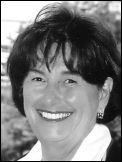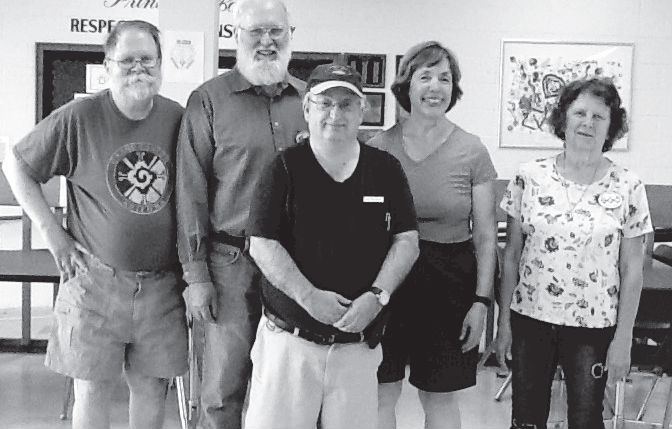
Drug overdoses rose 40 percent last year, costing the lives of 378 Mainers.
With words like ‘epidemic,’ ‘crisis,’ and ‘national emergency,’ the opioid problem has been in the news a lot lately. But how is this important issue impacting our local communities here in Central Maine?
That’s the question I set out to answer.
I started by contacting an old friend of mine. Jared Mills was a year ahead of me at Winslow High School, graduating in 1992. Now he serves as the Deputy Chief of Police for Augusta. He told me something I’d hear a lot in the succeeding weeks: The opioid issue really is a problem. It is a crisis, and we need to do something about it now.
“There have been eight pharmacy robberies in the last few years – just here in Augusta,” Deputy Chief Mills told me back in October. “We’ve solved them all, and they were committed by people looking for opiates.”
The message was: opiate withdrawal motivated the crimes. These weren’t hardened criminals so much as desperate people fighting an addiction that had become too much for them.
Something else became clear as I spoke to people involved in this effort: attitudes in law enforcement toward drug offenders are changing.
Detective Sergeant Tracey Frost, one of the Oakland police officers the town of China has hired part-time, put it most succinctly: “We can’t arrest our way out of this,” he told me. Frost has deep roots in the community, coaching at Messalonskee High and serving as the school’s Resource Officer.
We were eating lunch at the China Dine-ah. The enticing smell of burgers and bacon contrasted sharply with the somber topic we were discussing. “We have arrested our way out of certain social situations,” Frost explained. “Everyone knows you can’t drink and drive now. Everybody. We’ve made great strides in different areas like drunk driving and domestic abuse.”
However, according to Frost, the current opioid crisis is not an issue that can be solved that way. Still, Frost is hopeful. “Fortunately,” he continued, “we have police leadership in Maine who are smart, well-educated, and willing to say we’ve got to break the trend here, and start reaching out and helping people – as opposed to just throwing the cuffs on them and taking them down to jail.”
Arrest and incarceration is expensive, with costs that are significantly higher than comparable treatment programs. And it’s not effective, since addicts released from incarceration head right back to their addiction of choice, only to be arrested and incarcerated once again. Law enforcement is trying to break this cycle.
On the treatment side, medical professionals are dealing with a similar issue. Dr. Robert Croswell, Medical Director for MaineGeneral’s Mental Health and Substance Abuse Services, in Waterville, and a sitting member on the hospital’s Opiate Steering Committee, met with me to discuss the matter. In his mind, one of the obstacles to providing people with appropriate treatment is the criminal classification of opiates.
“In opiate addiction treatment,” he tells me, “there are pill counts and pee tests. If someone is caught with cannabinoids in their system, they can be kicked out of treatment. It turns the doctor into a law enforcement official. This is detrimental to patients who need help, and discourages doctors from participating in treatment programs. Compare this to alcohol addiction where the emphasis is on treatment, rather than the policing of an illegal substance.”
Dr. Croswell advocates treating opiates like alcohol: controlled and regulated, but not illegal. It’s still a controversial opinion, but one that’s gaining traction among those trying to deal with this issue. In 2015, the police department in Gloucester, Massachusetts, started a program that aims to treat addicts as patients rather than criminals. It has seen great success, and there is talk of bringing the concept here as well.
In Maine, deaths caused by drug overdoses shot up 40 percent last year, with a record 378 Mainers succumbing to addiction. That number is likely to go up when official numbers are released for 2017. Drug overdose is now the leading cause of death for Americans under 50.
From my conversations with those on the frontlines, it’s clear we’re dealing with a complex problem that isn’t going away anytime soon. The solutions we need require not just a change in policy, but a shift in attitude as well. Fortunately, those involved have studied the mistakes of the past and are aware that a different approach is necessary.
In the months ahead, I’ll be delving deeper into the treatment side of things, and talking with some of those directly affected. I’ll also be speaking with more of our local law enforcement here in Central Maine, to find out what they’re doing to combat this alarming trend.
There’s still a long way to go in dealing with this issue. The fight is far from over, but thankfully, those involved are not hiding their heads in the sand.
UPDATE: The numbers for 2017 have been released, and there were 418 overdose deaths last year, a 27 percent increase over 2016.
Eric Austin is a writer and technical consultant living in China, Maine. If you or someone you know has been affected by opiate addiction and you would like to share your story, please contact him at ericwaustin@gmail.com. All correspondence is strictly confidential.









